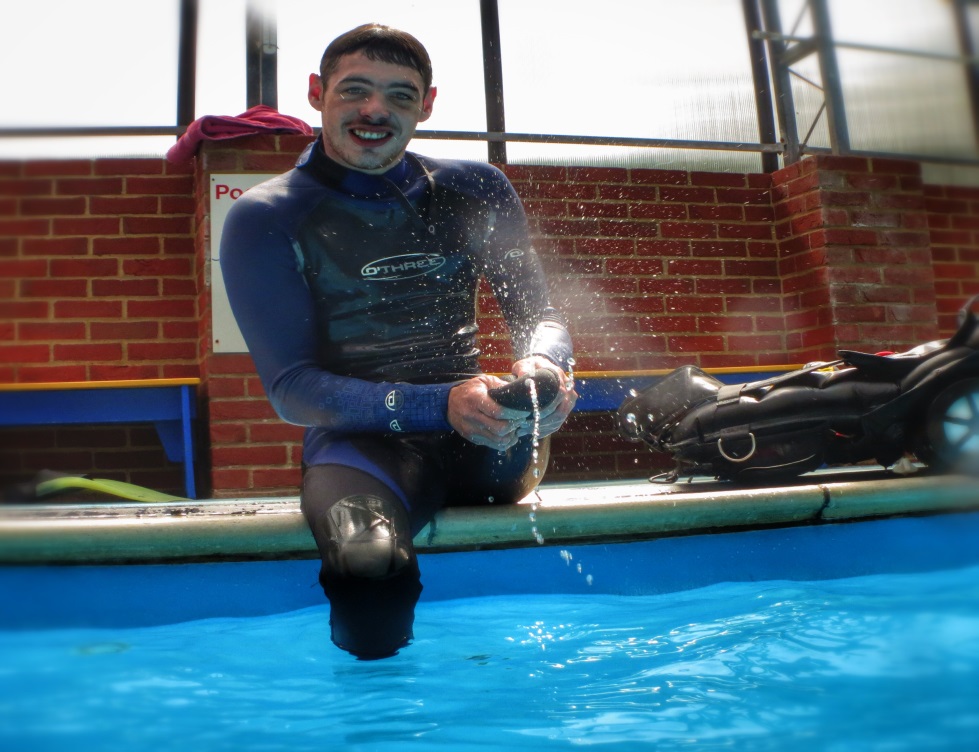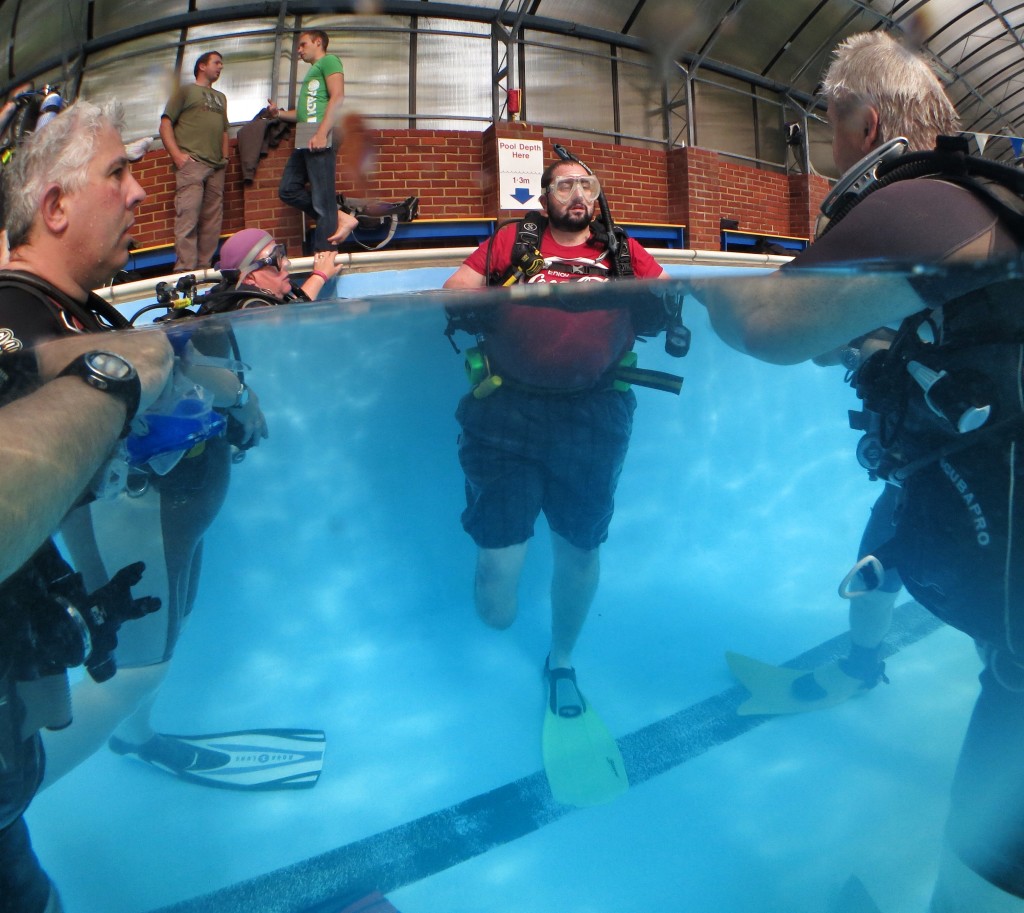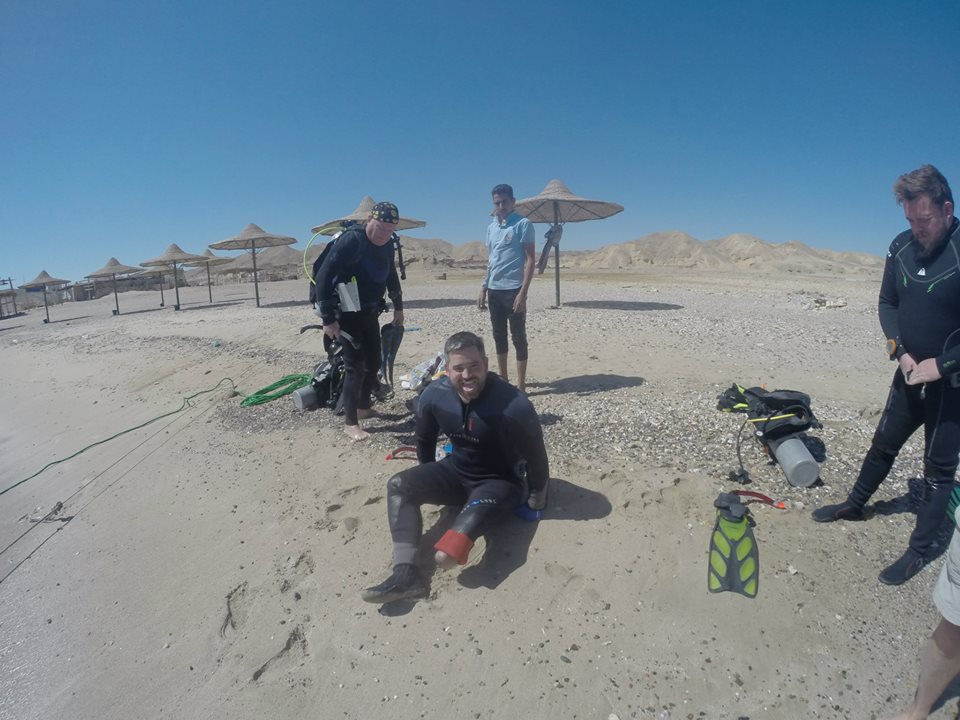The healing effects of scuba for war veterans have been well documented . British organization Deptherapy, run by PADI Staff Instructor Richard Cullen along with a team of three others, (Frank Buchanan of The Scuba Trust; Dan Dawson of Horizon Divers Key Largo, and Ernst Van Der Poll, who works with disabled divers in Costa Rica) seeks to rehabilitate through scuba diving seriously injured British armed services personal who have suffered life-changing mental or physical injuries during active service. In their words the charity aims to support:
“The relief of people, especially wounded, current and ex-members of the U.K. armed services, their dependents and, when funds and resources permit, similar persons from the ‘blue light’ services and their dependents, and eventually those from the general population, with a life-changing physical and/or mental condition or the like, by providing opportunities for rehabilitation, motivation and life-enrichment through specially tailored professionally delivered scuba diving.â€
They run specially adapted scuba-diving programs that have many proven benefits for the veterans, and have begun attracting the attention of those researching in this field. Deptherapy actively works with agencies in both the U.K. as well as the U.S. to further research the rehabilitative powers of scuba diving for the severely wounded.
While the medical science behind scuba-as-therapy is still in its infancy, there has been some scientific research showing that scuba diving greatly assists those with the most serious physical injuries, and that it’s particularly successful in reducing reported symptoms of Post Traumatic Stress Disorder (PTSD) and Traumatic Brain Injury (TBI).
Are special training techniques required?
Deptherapy educates all its divers to PADI standards using adaptive teaching, which is really about thinking out of the box. Scuba instructors are trained to teach in a precise way, so it’s often difficult to move away from those ingrained methods when teaching those who have disabilities. Many men tie a necktie every day — would you try to tell someone with one arm how to do that? The answer is probably no. The team at Deptherapy explains, “For example, when we come to kit removal and replacement underwater — for a person with one arm, would we tell them how to do the skill or would we ask them how they think they might do it?â€
All participants get one-on-one instruction and supervision, and because the courses are the same mainstream ones all divers take, each participant gets the benefit of being part of the wider scuba community.
“You can have no idea what scuba diving means to me,†says Chris Middleton, formerly of the Royal Scots Dragoon Guards. “It is a sport I can participate in as if I still had my legs; I feel normal again. Being a PADI diver is just awesome. I can dive with a buddy anywhere in the world; there is no tag to say I am disabled. I am Chris Middleton, a PADI Advanced Open Water Diver. I have achieved something very special.â€
If you’re a PADI professional and you’re interested in helping disabled U.K. vets learn to dive, Deptherapy also runs courses for PADI professionals who wish to learn how to teach using the adaptive teaching methods.
The post Deptherapy appeared first on Scuba Diver Life.


